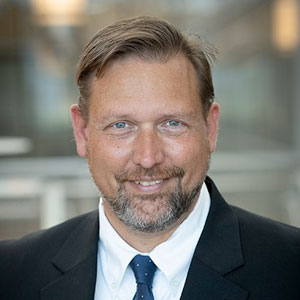David Umulis

David Umulis
Senior Vice Provost Purdue University for Indianapolis
(765) 494-1223dumulis@purdue.edu
David Umulis
Senior Vice Provost Purdue University for Indianapolis
David M. Umulis is senior vice provost and chief academic officer for Purdue University in Indianapolis, the University’s first comprehensive urban campus and a direct extension of the Purdue West Lafayette flagship campus. Umulis reports directly to Provost Patrick Wolfe and interfaces with all areas in the Provost’s Office to prepare, launch and support Purdue University in Indianapolis.
Umulis joined the Purdue faculty in 2008, and is an impactful research leader, a widely respected mentor to young faculty colleagues and an administrator with a proven track record. His research has been supported by the National Institutes of Health, National Science Foundation and Showalter Foundation, among others. Umulis serves on numerous grant review panels and boards including the European Science Foundation and government review panels at the NIH and NSF. He currently serves as associate editor of the field-leading journal PLoS Computational Biology. Umulis is a member of the Purdue University Teaching Academy and has received the outstanding teacher award in agricultural biology and engineering, the Teaching for Tomorrow Award, the 2021 Henry T. Yang Award for Leadership in Service from Purdue’s College of Engineering, and the 2011 Richard L. Kohls Early Career Award.
Concurrent with his role in the Provost’s Office, Umulis also serves as PI and Director of the NSF EMBRIO Institute, an integrative multidisciplinary institute led by Purdue and composed of six other universities. The NSF EMBRIO Institute uses engineering, imaging, AI and organismal biology to uncover mechanisms of wound healing and cellular defense. Prior to becoming senior vice provost, Umulis served as the Dane A. Miller head of the Weldon School of Biomedical Engineering, where he led the Weldon School to advance discovery and translation in biomedical imaging, neuroengineering, instrumentation, computational biomedicine, and engineered biomaterials.
